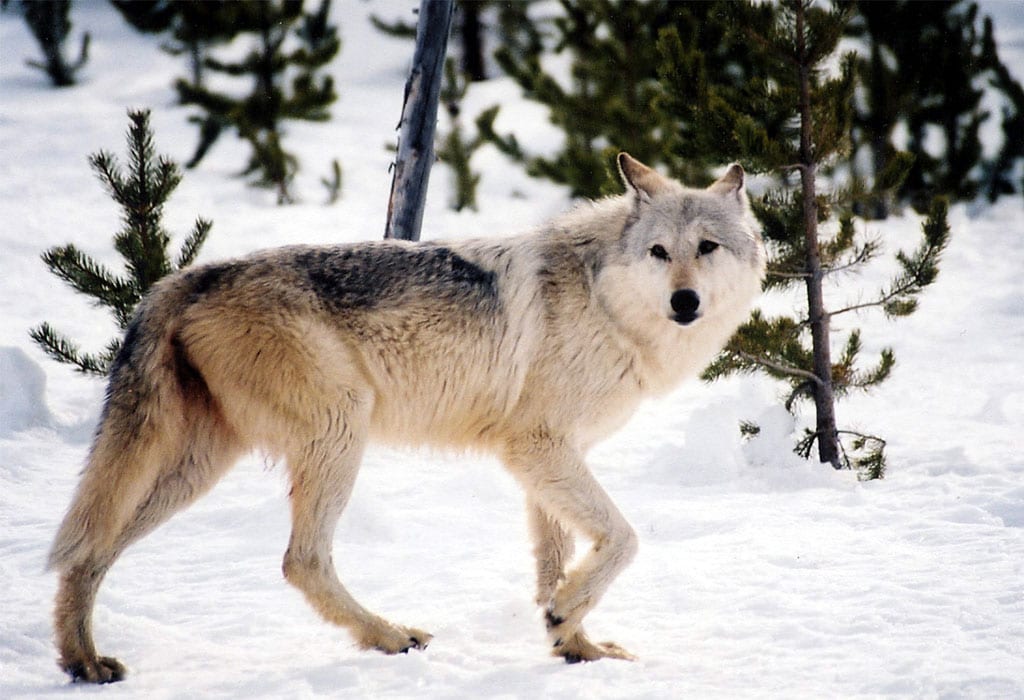Gray wolves in the Northern Rockies have suffered mightily since being stripped of Endangered Species Act protections. Without these critical legal safeguards, wolves must now survive draconian state laws aimed at pushing the species back to the brink of extinction.
Recent laws passed in Idaho are among the worst: they call for drastic reductions to the state’s wolf population by nearly any means necessary. This includes year-round wolf hunting and foothold trapping on private lands and many public lands, the use of lethal and indiscriminate snares, dangerous night hunting with spotlights and night vision equipment, and even bounties. All this, despite overwhelming scientific evidence showing the importance of wolves and other apex predators to healthy ecosystems.
It’s time for the Idaho Department of Fish and Game to do the right thing, and you can help. Click here to submit your comments.
Fish and Game just released a draft Gray Wolf Management Plan that will guide how the agency manages wolves for the next five years. The draft doesn’t bode well for wolves, science, or the people of Idaho. Among its ill-conceived provisions, the plan aims to slaughter wolves until the population drops from an estimated 1,200 individuals to just 500; incentivizes wolf killing with bounties; expands the trapping season; and allows traps just ten feet from public recreation trails. Fish and Game justifies this proposed “management” with unfounded concerns about deer and elk populations and livestock.
Fish and Game is accepting public comments on its draft plan until March 6 at 8 a.m. MST. To submit your own, click here to take action and follow the steps on the Fish and Game website. Consider using the following points to draft your comments, but make sure to personalize them for maximum effectiveness:
- The plan should not manage down to just 500 wolves. The 500-wolf population target has no basis in science, only politics—it derives from the minimum population set by the U.S. Fish and Wildlife Service in 2009 to trigger re-listing under the Endangered Species Act. The 500-wolf population number should not be a management target.
- The plan must protect intact wolf packs. Wolves are social creatures and packs are family units. Losing family members breaks up families, which in turn makes it harder for younger wolves to survive and can increase predation on livestock. Healthy wolf families are easier to monitor and have greater success at surviving on native prey: elk and deer.
- Trapping is inhumane, indiscriminate, and a danger to wildlife and the public. Traps often catch non-target species, including protected species and companion animals, and cause untold pain and suffering to trapped animals.
- The plan must not sanction bounties and killing contracts. Providing bounty payments and financial incentives to kill wolves (including their newborn pups) is not acceptable, ethical, or responsible wildlife management, nor is it consistent with any other wildlife management practices in Idaho or nationally.
- Idaho’s elk herds are thriving. While the draft plan cites the size of elk herds as cause to target wolves, elk populations in Idaho are stable and trending up. According to Fish and Game, elk hunters harvested more than 20,000 animals for the eighth year in a row in 2021. This has happened only one other time dating back to the 1930s.
- Wolves help elk and deer. A healthy wolf population combats chronic wasting disease (CWD), which is beginning to appear in deer herds in Idaho.
- Wolves don’t hurt Idaho’s livestock industry. The draft plan points to livestock conflicts as a reason to target wolves. In reality, confirmed and probable livestock losses to wolves average under 200 sheep or cattle per year, and a federally funded program compensates ranchers for these losses.
Are you a current or past resident of Idaho? Tell Fish and Game in your comments. Not a resident? Idaho is more than 60% federal lands, meaning every American has a stake in the state. And 88% of the wolves killed in Idaho were killed on public lands. Let Fish and Game know you deserve a voice in decision making.
